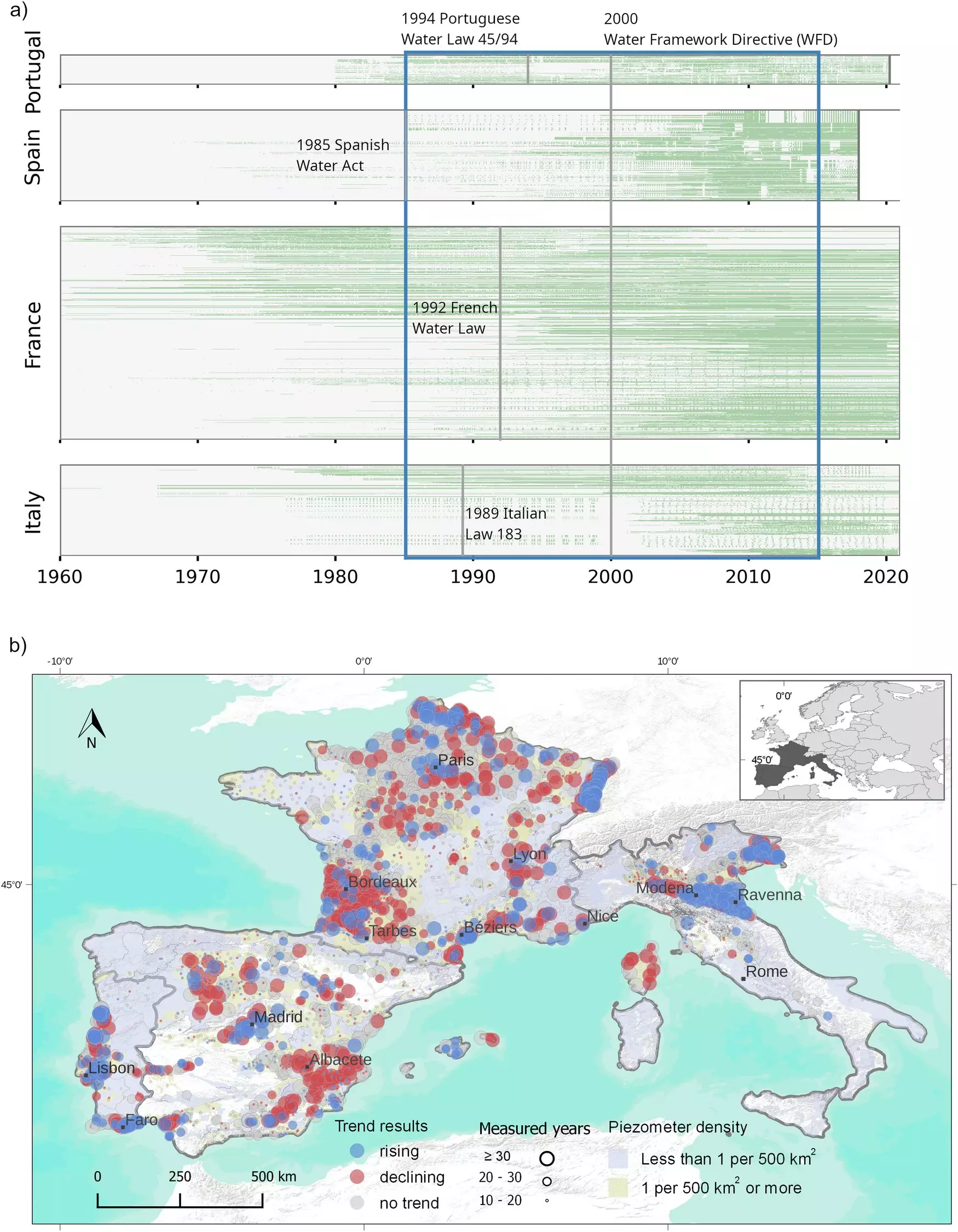When it comes to groundwater management, there is a common belief that groundwater levels are continuously declining everywhere in southwestern Europe. However, a recent study conducted by an international research team led by the Helmholtz Centre for Environmental Research (UFZ) reveals that the situation is much more complex than previously thought. The team analyzed multidecadal data from over 12,000 groundwater wells in Portugal, Spain, France, and Italy from 1960 to 2020. Surprisingly, the study found that 68% of the examined wells showed stable levels over the past three decades, 20% showed rising groundwater levels, and only 12% showed a decline. This challenges the widespread assumption of continuous groundwater depletion in the region.
One of the key findings of the study is the regional disparities in groundwater trends within southwestern Europe. The research highlights that groundwater levels are primarily declining in semi-arid regions with intensive agriculture and frequent droughts. Regions like Tarbes in France and Medina del Campo in Spain have been experiencing groundwater decline for decades, attributed to decreased rainfall, elevated temperatures due to climate change, and intensive agricultural practices. On the other hand, temperate regions with high precipitation rates, such as northern France, show stable groundwater levels due to high recharge rates. Additionally, urban and industrial areas, like Lyon, Nice, Modena, and Bordeaux, have seen declining groundwater levels since the 1960s, mainly due to increased domestic and industrial water consumption.
Management Practices for Sustainable Groundwater Use
Despite the challenges posed by climate change and anthropogenic pressures, the study emphasizes that sustainable groundwater management is achievable with suitable management practices. In regions like La Mancha Oriental in Spain, effective management approaches have led to the recovery of groundwater levels. For example, the implementation of monitoring, remote sensing, and individual water use plans by a water user association in the Júcar River basin resulted in the reversal of groundwater level trends. This success story demonstrates that proactive measures can mitigate the impacts of groundwater depletion in agricultural regions.
The experience gained from managing groundwater in southwestern Europe can serve as a valuable lesson for regions worldwide facing similar challenges. As groundwater demand continues to rise and aquifer recharge is compromised by climate change, the study suggests that countries like Germany can benefit from the knowledge and practices developed in southwestern Europe. By understanding how to optimize groundwater use, improve irrigation methods, enhance stakeholder engagement, and learn from past mistakes, countries can adopt an anticipatory approach to sustainable groundwater management. The insights gained from the study underscore the importance of local context and tailored solutions in addressing groundwater sustainability issues.
The study sheds light on the reality of groundwater management in southwestern Europe, challenging conventional beliefs and highlighting the need for nuanced approaches to address regional disparities in groundwater trends. By implementing effective management practices and learning from successful case studies, countries can work towards sustainable groundwater use in the face of climate change and increasing water demands. The lessons learned from southwestern Europe can guide global efforts towards securing this vital resource for future generations.


Leave a Reply